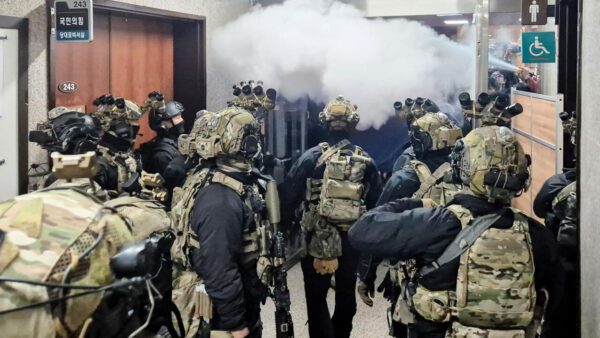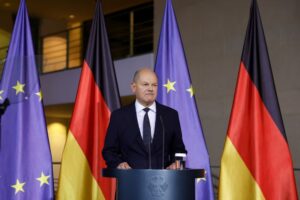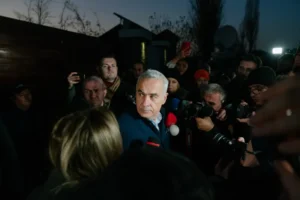Martial Law Declared
South Korea was plunged into crisis, chaos, and turmoil in the late hours of Tuesday, December 3 as the country’s President, Yoon Suk Seol, made the shockingly brazen decision to declare martial law. This declaration was swiftly reversed, as Yoon backed down and lifted the order just over 6 hours later following an emergency vote by members of the National Assembly. The decree, which went into effect at 11 pm local time (GMT+9), banned all forms of protest, suspended activity by parliament and political parties, and placed media under full government control, although very few – if any – of these steps eventually went into effect. President Yoon, in explaining his declaration, argued that the country’s opposition parties were holding the parliamentary process, hostage, saying that he decided to “protect the free Republic of Korea from the threat of North Korean communist forces, to eradicate the despicable pro-North Korean anti-state forces that are plundering the freedom and happiness of our people, and to protect the free constitutional order”. The declaration also prohibited “Strikes, work stoppages and rallies that incite social chaos”, as well as calling for “all medical personnel (…) to return to their jobs within 48 hours and work faithfully”, and that “those who violate (would) be punished in accord with the Martial Law”. Furthermore, the declaration specified that those who violated the conditions may be “arrested, detained, and searched without a warrant”. South Korea’s constitution allows for the proclamation of martial law “when it is required to cope with a military necessity or to maintain the public safety and order by mobilization of the military forces in time of war, armed conflict or similar national emergency”. The constitution specifies that martial law can take two forms – ‘extraordinary’ and ‘precautionary’- and that under the former, “special measures may be taken with respect to the necessity for warrants, freedom of speech, the press, assembly and association, or the powers of the Executive and the Judiciary under the conditions as prescribed”. While the political landscape in Korea has been heavily polarized for some time now, the imposition of martial law was roundly criticized as a huge overreaction, as well as a massive overstep in power by President Yoon.
South Korea’s Charged Political Scene
In the lead-up to the declaration, South Korea’s President Yoon found himself under increasing pressure, both from within his own party and among opposition parties. Yoon’s political faction, the right-wing People Power Party (PPP), find themselves as the ‘minority’ within the country’s national assembly, controlling only 108 seats to the opposition’s 192, chief among those the Democratic Party, who possess 170 seats. This fractured and hostile dynamic was the primary factor behind Yoon’s declaration that opposition parties were holding the country hostage, forcing the East Asian nation into political gridlock. Following his slender victory in the 2022 Presidential Election – winning by only ¾ of a percentage point, making it the closest contest in history – Yoon has grappled with consistently dire approval ratings, falling to as low as 19 per cent just 4 days before the imposition of martial law. In the past 2-and-a-half years, the country has been dogged by social and economic issues, underlined by the country’s perilously low birth rate of just 0.7 children per woman, a new world-record low and dangerously below the well-established ‘replacement rate’ of 2.1 children per women, the level of fertility “at which a population exactly replaces itself from one generation to the next”, a trend which will see South Korea’s population slashed in half by the end of the century. Despite this, in 2023 Yoon’s government laid out a proposal to increase the maximum workweek to 69 hours from an already-high 52, following complaints by business groups that the 52-hour work week was insufficient for meeting deadlines. This move was swiftly U-turned on by the government, which backed down following significant backlash from the country’s youth population who feared for the future of their work-life balance. In January 2024, Democratic Party opposition leader Lee Jae-myung was stabbed in the neck in an assassination attempt, which he survived, recovering fully in time to participate in the National Assembly election a few months later. The PPP performed surprisingly well in the April 2024 legislative election despite the general discontent surrounding President Yoon, whose approval rating stood at an estimated 36.3 percent, forcing many within the party to distance themselves from Yoon in the run-up to the contest. The PPP picked up 5 seats for their current total of 108, while the chief opposition Democratic Party lost 7 seats, for a tally of 173. Relative election success notwithstanding, both the President and his party have largely stumbled through these last several months, with Yoon boycotting the opening of the National Assembly in September, where it is traditional for the President to deliver a speech. This boycott came amid allegations of wrongdoing against Yoon’s wife, Kim Keon Hee, who was caught up in a flurry of controversy after accepting a luxury Dior handbag purchased for 3 million South Korean won (€1,995), although she was cleared of charges after it was confirmed that no favours were returned to the individual who gifted her the bag. Just last month, Yoon apologised for the saga, acknowledging that his wife ‘should have conducted herself better’, while simultaneously calling out her ‘demonisation’ by opposition parties and the country’s media.
Immediate Build-Up to the Decision
On December 2nd, a day before the declaration, South Korea’s National Assembly Speaker, Woo Won-shik of the Democratic Party announced the deferral of a budget bill, citing a lack of bipartisan agreement. The proposal, which was passed unilaterally by the opposition party, was lambasted by the PPP for its ‘politically motivated’ spending cuts, which included reductions in the budget of “special activity funds (SAFs) for the presidential office, prosecution, and police”. This budgetary standoff came amid motions submitted by the Democratic Party to the National Assembly to impeach the country’s chief auditor, and three prosecutors involved in the aforementioned scandals involving the First Lady. These moves were condemned by the Presidential office, which described the proposals as “unprecedented in our constitutional history” and “damage (ing to) the foundation of the constitutional order”. Despite the Presidential office’s strong statement in support of the country’s constitution, it was not even 36 hours later that President Yoon had declared martial law, effectively suspending the constitution.

The Declaration and Its Aftermath
Despite South Korea’s deeply polarized political landscape, with divisions that have seemed to only escalate as of recent, the imposition of martial law by President Yoon took many by surprise, including the aforementioned opposition leader Lee Jae-myung, who said in an interview that he initially thought that Yoon’s announcement was a ‘deepfake’, meaning that it was fabricated by artificial intelligence. The declaration, however, was no AI ploy, and went into effect just over half-an-hour after Yoon’s announcement. Within a couple of hours, South Korea’s legislature was stormed by nearly 300 troops, who were met with fierce opposition, including parliamentary staffers who used sofas and fire extinguishers to block their entry. The martial law’s introduction was accompanied by an ‘arrest list’ issued by Yoon, which included Lee, along with his own party leader, Han Dong-hoon, as well as three opposition lawmakers. In spite of the turmoil that engulfed the country in the early hours of December 4th, many of the country’s lawmakers rallied together against the declaration, with the 190 lawmakers present voting unanimously to overturn the martial law, with the proposal accepted and enforced by the Yoon’s cabinet a few hours later. Before the crack of dawn that morning, the PPP began discussing Yoon’s expulsion, while opposition lawmakers called on his resignation, threatening articles of impeachment if he did not. By the time the sun had risen, many of Yoon’s senior aides and officials had resigned, with demonstrations continuing throughout the nation’s capital of Seoul. Later that day, impeachment proceedings officially began against Yoon, with the country’s defence minister tendering his resignation.
President Yoon’s Political Lifeline
An impeachment motion would have required the affirmative vote of 200 of the 300 members of the country’s national assembly to pass, meaning that if all 192 members of the opposition voted in favour, they would only have needed 8 members of the PPP to cross the aisle. While it seemed all but guaranteed that the motion would pass, given that even the PPP’s leader, Han Dong-hoon had come out in support of impeachment, few could have predicted what was to come. In a shocking turn of events, all but 3 of the PPP’s members in the National Assembly walked out before the bill was voted on, meaning that the quorum – or a minimum number of required members for votes to be counted, which in this case was 200 – was not reached, as only 195 lawmakers were present. Shortly after this, however, the aforementioned Han Dong-hoon declared that the party “will pursue an orderly resignation” of Yoon in order to ‘minimize confusion’, indicating that he was planning to step down when a suitable replacement plan was put in place. Meanwhile, the country’s Prime Minister, Han Duck-soo, announced that President Yoon had stepped back from “handling state affairs”, suggesting that there already existed a power vacuum, albeit one that was due to be filled soon. Furthermore, Yoon has had a travel ban imposed on him by South Korean authorities, banning him from travelling abroad for the time being.
President Yoon Finally Impeached
Eventually, however, despite surviving the initial impeachment attempt, President Yoon was finally impeached on December 14, with 205 votes in favour and 85 against, sparking wild celebrations on the streets of Seoul. As a result of the impeachment, Yoon has been suspended from his Presidential duties, with Prime Minister Han Duck-soo assuming the role of acting president. Given the current political circumstances, it is likely that there will be another leadership contest in the near future – either within the PPP itself or across the whole country – although the next Presidential elections are not scheduled until 2027.
Feautured image: (Reuters) Military Forces Gather Outside the National Assembly After Martial Law Was Declared on December 3rd







